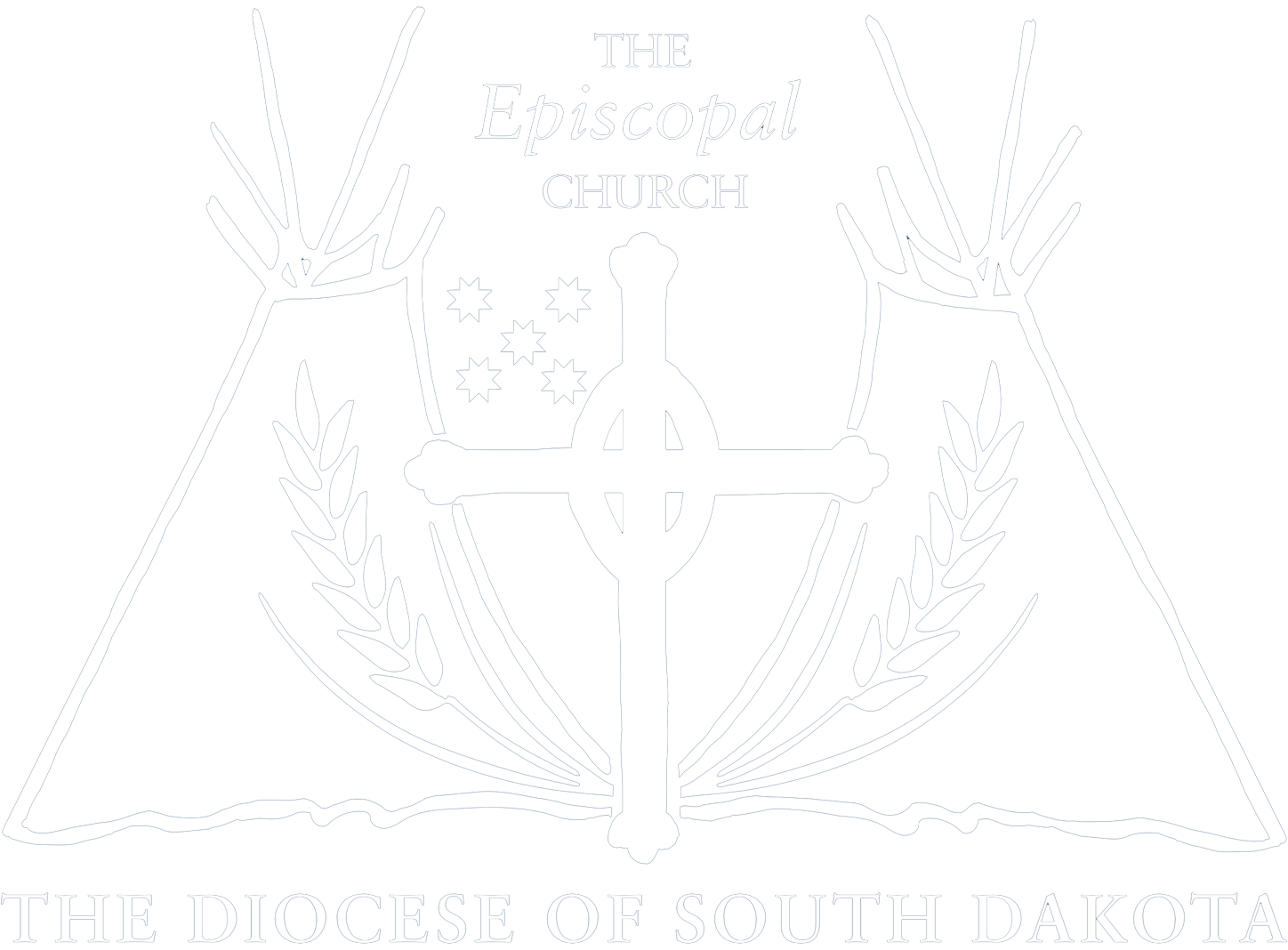Photo by Fadhil Abhimantra on Unsplash
Dear friends in Christ,
I was recently re-reading Forward Movement’s first publication from 1935. On the last page, there’s a powerful prayer “For Zeal.”
Almighty God, whose Son Jesus Christ came to cast fire upon the earth, grant that by the prayers of Thy faithful people a fire of burning zeal may be kindled and pass from heart to heart, that the light of Thy Church may shine forth bright and clear; through the same Thy Son Jesus Christ our Lord. Amen.
Lord knows, our church could use some zeal! Our challenges are many, the needs of the world are great, and the transformational Gospel of Jesus is breathtaking.
After I fervently offered this prayer, I remembered a conversation a few weeks ago, when someone said that the first step of church growth is praying for the church to grow.
Then, as today, I wondered whether we pray for our church often and fervently. So, my friends, let us pray for our church. Pray for wisdom, strength, courage, love, mercy, blessings, growth, and even zeal.
Let us pray…
Yours faithfully,
Scott Gunn
Executive Director, Forward Movement
Dear friends in Christ,
I was recently re-reading Forward Movement’s first publication from 1935. On the last page, there’s a powerful prayer “For Zeal.”
Almighty God, whose Son Jesus Christ came to cast fire upon the earth, grant that by the prayers of Thy faithful people a fire of burning zeal may be kindled and pass from heart to heart, that the light of Thy Church may shine forth bright and clear; through the same Thy Son Jesus Christ our Lord. Amen.
Lord knows, our church could use some zeal! Our challenges are many, the needs of the world are great, and the transformational Gospel of Jesus is breathtaking.
After I fervently offered this prayer, I remembered a conversation a few weeks ago, when someone said that the first step of church growth is praying for the church to grow.
Then, as today, I wondered whether we pray for our church often and fervently. So, my friends, let us pray for our church. Pray for wisdom, strength, courage, love, mercy, blessings, growth, and even zeal.
Let us pray…
Yours faithfully,
Scott Gunn
Executive Director, Forward Movement

Did you know ?
The Diocese of Iran is one of the three dioceses of the Anglican Province of Jerusalem and the Middle East. The diocese was established in 1912 as the Diocese of Persia and was incorporated into the Jerusalem Archbishopric in 1957.
Presiding BishopSean Rowe spoke with Archbishop Hosam Naoum of the Province of Jerusalem and the Middle East yesterday, June 22?
Did you know?
Much of the conflict lies within that province, which includes the Diocese of Jerusalem and the Middle East, the Diocese of Cyprus and the Gulf, and the Diocese of Iran.
Please continue to pray for all of God’s people in those places, and for the approximately 40,000 U.S. service members serving in the Middle East.
If you continue reading the opening remarks, some familiar names are mentioned in paragraphs 15 & 16.
For more, please read Presiding Bishop Rowe's opening remarks to Executive Council.
Either at episcopalchurch.org or the Diocese of South Dakota's website at episcopalchurchsd.org

A PRAYER FOR PEACE AND FORGIVENESS
Loving God of all the earth, we pray for those who perpetrate injustices in the Holy Land, regardless of their motives; we pray that you will change their hearts and fill them with the spirit of mercy. Teach us all the pathways of peace and forgiveness. Spirit of comfort whose glory covers the face of our earth, comfort the oppressed, give shelter to those who have lost their homes, and let your peace dwell in every heart. With thankful hearts we pray in the Name of our Lord and Savior, Jesus Christ. Amen. Contemporary Way of the Cross, p. 49

From We Thank Thee by Ralph Waldo Emerson

During this Lenten season we will journey with United Thank Offering's Lent Gratitude Journey!
Beginning March 5, today, Ash Wednesday, you will receive an email every day inviting you to practice gratitude.
We hope you'll enjoy and share these thoughtful questions with your family.
And we hope you'll post about it on social media using #GratefulLent.
March 5, 2025
1) Tell your family why you are grateful for them.
2) Reflect on a time when you felt or experienced being welcomed.
3) Why was that experience so memorable for you?

EPISCOPAL DIOCESE OF SOUTH DAKOTA
Confirmation Class
Don’t have a Church to call home? Want to become more involved in your community? Renew your life with Jesus Christ. The Episcopal Church will be administering a daylong Catechism class for all who want to renew their faith in God and the Episcopal Church. This class is open to anyone from age 10 and up from the Ft. Thompson, Lower Brule, Chamberlain, Crow Creek, Big Bend or any other church. This confirmation class will prepare you to be confirmed by Bishop Jonathon Folts at 10:00 am on April 16, 2025 at Christ Episcopal Church, Ft. Thompson, SD or St. John the Baptist Crow Creek at 2:00 pm. All attending this class will receive a certificate of completion so they can get confirmed. The Confirmation class will run from 9:00 am to 4:00 pm at the Tokata Youth Center here in Ft. Thompson on March 8th, 2025 and an alternate date of March 15th. Noon lunch will be provided.
A Church minister will personally contact all families who have anyone who wishes to be Baptized and/or Confirmed on April 6th, 2025. Please contact: Fr. Kim Fonder 605-730-0626, Red Olson 605-730-0481, Shirley Crane 605-730-2027, Terry Quilt 605-522-1280, or Lovetta Fallis 605-280-3114 to sign up for the class or if you have any questions.
”Being the Church many people don’t expect us to be”

Protect Yourself from Romance Scams
As we celebrate love this month, it's important to stay vigilant against romance scams. Scammers often prey on emotions, building fake relationships to swindle your money and personal information. These fraudsters use various tactics to win your trust and create a false sense of intimacy, making it crucial to recognize the warning signs early on.
Here are some red flags to watch out for:
Too Good to Be True: If someone seems too perfect or professes love quickly,
be cautious.
Requests for Money: Never send money or share financial information with someone you've never met. Be cautious about sharing personal details, such as your address, phone number, or financial information, with someone you haven't met in person.
Inconsistent Stories: Be wary of conflicting details in their stories.
To protect yourself, stay safe and protect your heart and finances. If something feels off, trust your instincts and take action.
Learn more about how to safeguard yourself from romance scams at banksneveraskthat.com

Discover a congregation that has provided ONE MILLION DOLLARS worth of FREE DENTAL CARE to children under the age of 21! In this segment of “Missional Miles,” we visit St. James’ Episcopal Church in Belle Fourche. This congregation embodies “holy hospitality” by offering their building space to help meet the needs of the Belle Fourche community. You’ll always leave St. James feeling like you’ve been fed spiritually and physically, and they’d be happy to see you in person!
https://youtu.be/gAtlG41-1dU

In response to the devastation caused by the fires in California and in answer to those asking how they might help, we encourage everyone to consider supporting relief efforts through these two organizations:
Episcopal Relief and Development: https://www.episcopalrelief.org/
World Central Kitchen: https://wck.org/
And, as always, please continue to pray for everyone affected in your Sunday morning and daily prayers.

"Missional Miles" goes to New Home Lutheran and St. Mary's Episcopal Church, Mitchell! Click on the link to view.
https://youtu.be/CL1FBk5KX5A

Merry Christmas from the Diocese of South Dakota.
May the coming year bring you Peace, Love, Joy and Hope.

Name three things you would be grateful to find in your Christmas stocking.
Why you may find an orange in your Christmas Stocking.
They were a rarity, so an orange was a true gift and they are said
to represent a gift of Gold from Saint Nicholas
One theory behind the tradition of oranges in the stocking stems from the generosity of Saint Nicholas (also known as Santa Claus, Father Christmas, Kris Kringle and Old Saint Nick), who was the son of a wealthy merchant and later in life a bishop. It's said that he lived near a father and his three daughters who had fallen on hard times, so Nicholas secretively threw three bags of gold through their window, which were rumored to have landed in each of the girl's stockings that were hanging on the mantelpiece to dry. The father eventually found out who the gift giver was and was so moved he told everyone in town about Nicholas. This was not only the origin of Santa Claus but also one reason for oranges—which represent bags of gold—in our stockings. And during the Great Depression or the Dirty Thirties, getting an orange in your stocking was a real treat." This wasn't just a thing in England—many articles I read noted that oranges were, at times, the only gift under the tree.

What Christmas movie do you look forward to watching each year?

Please click and read the following announcement: https://www.episcopalchurchsd.org/article/1939380
In this email./text is a link to our Christmas greetings and message to the Diocese. Clergy and lay leaders are encouraged to share this link with their congregations through social media accounts or email chains.
Merry (almost) Christmas!
https://youtu.be/47dZRNYt7G4
Name three traits about yourself, that you are grateful for.

The newest segment of "Missional Miles," focusing on St. Mary's & Our Blessed Redeemer in Flandreau, is now available for viewing: https://youtu.be/aendS45qhjM


